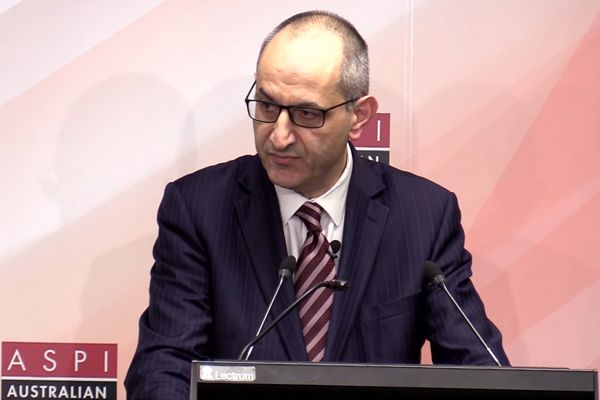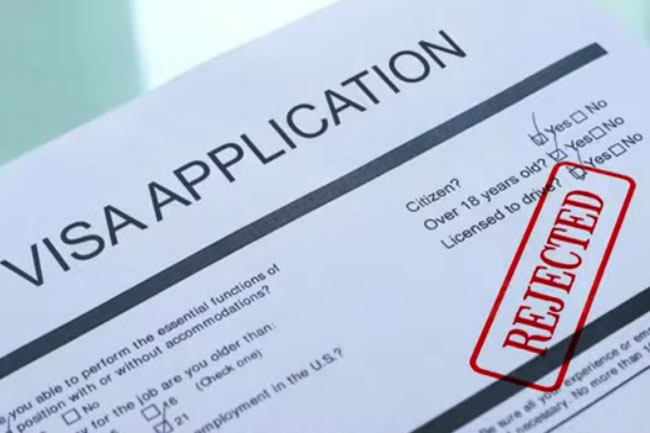In an October 2020 speech, Home Affairs Secretary Mike Pezzullo increased his list of major threats to Australia from the seven he gave us in March 2019. So how do the two lists compare?
In his March 2019 speech, delivered just two months before the 2019 Election and just days before the Christchurch massacre, Pezzullo said he had seen “a dark kaleidoscope of future stormy possibilities” which threaten a great cost on the nation.
The list he provided in March 2019 was as follows:
- great power war;
- employment of chemical, biological, radiological or nuclear weapons;
- a cyberattack with economy-wide ramifications;
- deliberate subversion of our democratic institutions and our social cohesion;
- ungoverned and dangerous territories which host terrorist groups;
- radical extremist Islamist terrorism; and
- transnational, serious and organised crime.
Pezzullo went onto stress:
...this is not a randomly generated list of “scares”; It is an evidence-based risk framework for thinking about national security in the 2020s and for making decisions about capabilities, strategies, plans, operations and resource allocation.
Lest it be thought that this represents a sinister and cynical “dark view” of humanity, let me stress that I am a strategic optimist. If threats are realistically assessed, if risks are properly appreciated and managed, if all do their duty, if the nation is engaged intelligently on the challenges that lie before us, in a discourse which brings together parliamentarians, journalists, business leaders, academics and others, if difficult choices are taken in good time, then we will be able to navigate these storms, ever hopeful of clear skies and calm seas.
Sadly, Pezzullo did not provide any of the so-called “evidence” he used to come up with this list. If we had access to that evidence, we might be able to identify why Pezzullo completely missed the three biggest threats that hit Australia and our region in 2019 and 2020.
All three risks sit firmly within his portfolio responsibilities:
- the emergence of White supremacists, neo-Nazi groups and individuals such as the Australian who participated in the Christchurch massacre. ASIO's Director-General has said they now spend 30 to 40 per cent of their time monitoring and disrupting such groups and individuals;
- natural disasters generated by climate change. We know from information revealed via FOI that in the lead-up to the 2019 Election, Emergency Management Australia, a division within Pezzullo’s Department, was warning of the catastrophic risks of bushfires associated with climate change. The dire warnings were not only provided to Pezzullo but he forwarded them onto Minister Peter Dutton. Yet he saw no reason to mention this in his seven great threats speech of March 2019. He may have been worried mentioning climate change might have been frowned upon by Dutton et al; and
- the global pandemic. The former Department of Immigration played a key role in countering the SARS outbreak years earlier. The Migration Act, Schedule 4, Public Interest Criterion 4007 (1)(ab)(b) states visa applicants must be ‘free from a disease or condition that is, or may result in the applicant being, a threat to public health in Australia or a danger to the Australian community’. Despite Pezzullo holding this very explicit responsibility for public health risks being brought in from overseas, as well as his Department’s crucial role with SARS, Pezzullo did not see a global pandemic as any sort of risk worth mentioning in his March 2019 speech. Indeed, it appears Pezzullo didn’t even advise Dutton of his responsibility in this regard.
Luckily for all of us, in his October 2020 speech, Pezzullo has corrected these omissions from his March 2019 speech.
With extraordinary hindsight and not a hint of embarrassment, Pezzullo now says:
Australians have come to fear assaults from the natural world and it is no longer tenable to think of security as only about defence from armed attacks.
...one of the most vital security practices in the face of the threat of COVID-19 is hand-washing and good hand hygiene, a measure which is as far removed from the appearance and character of a complex weapon system, and yet of more importance to the current security of the population than every weapon in our armed forces.
Talk about a Road to Damascus conversion.
Imagine if Pezzullo had taken himself out of his “dark kaleidoscope” that operated largely in a narrow defence realm a little earlier and actually listened to people in his Department and read his own legislation and departmental files?
Would that have enabled us to be better prepared for what we have seen in 2019-20?
Abul Rizvi is an Independent Australia columnist and a former Deputy Secretary of the Department of Immigration, currently undertaking a PhD on Australia’s immigration policies. You can follow Abul on Twitter @RizviAbul.
 This work is licensed under a Creative Commons Attribution-NonCommercial-NoDerivs 3.0 Australia License
This work is licensed under a Creative Commons Attribution-NonCommercial-NoDerivs 3.0 Australia License
Support independent journalism Subscribe to IA.














